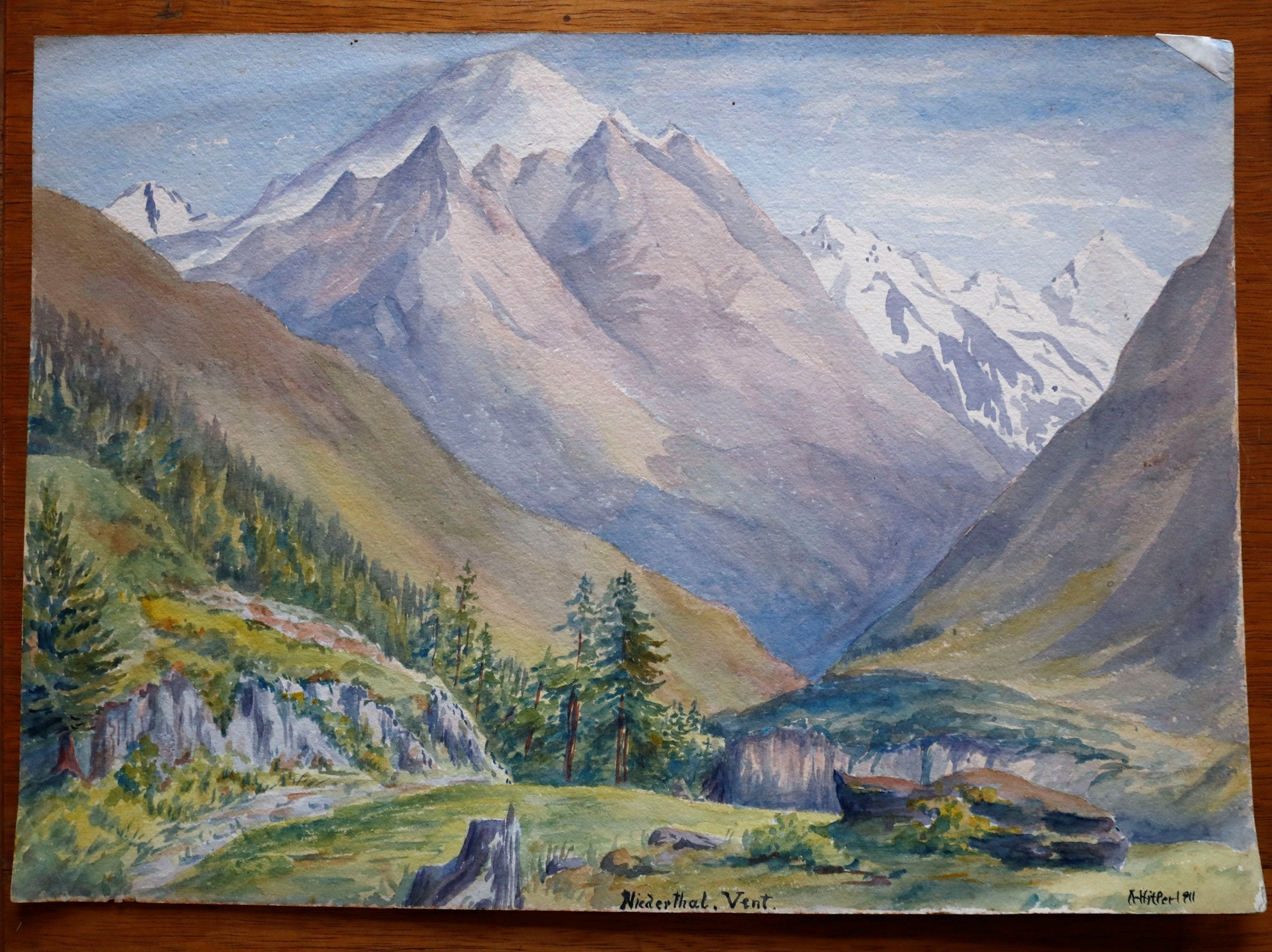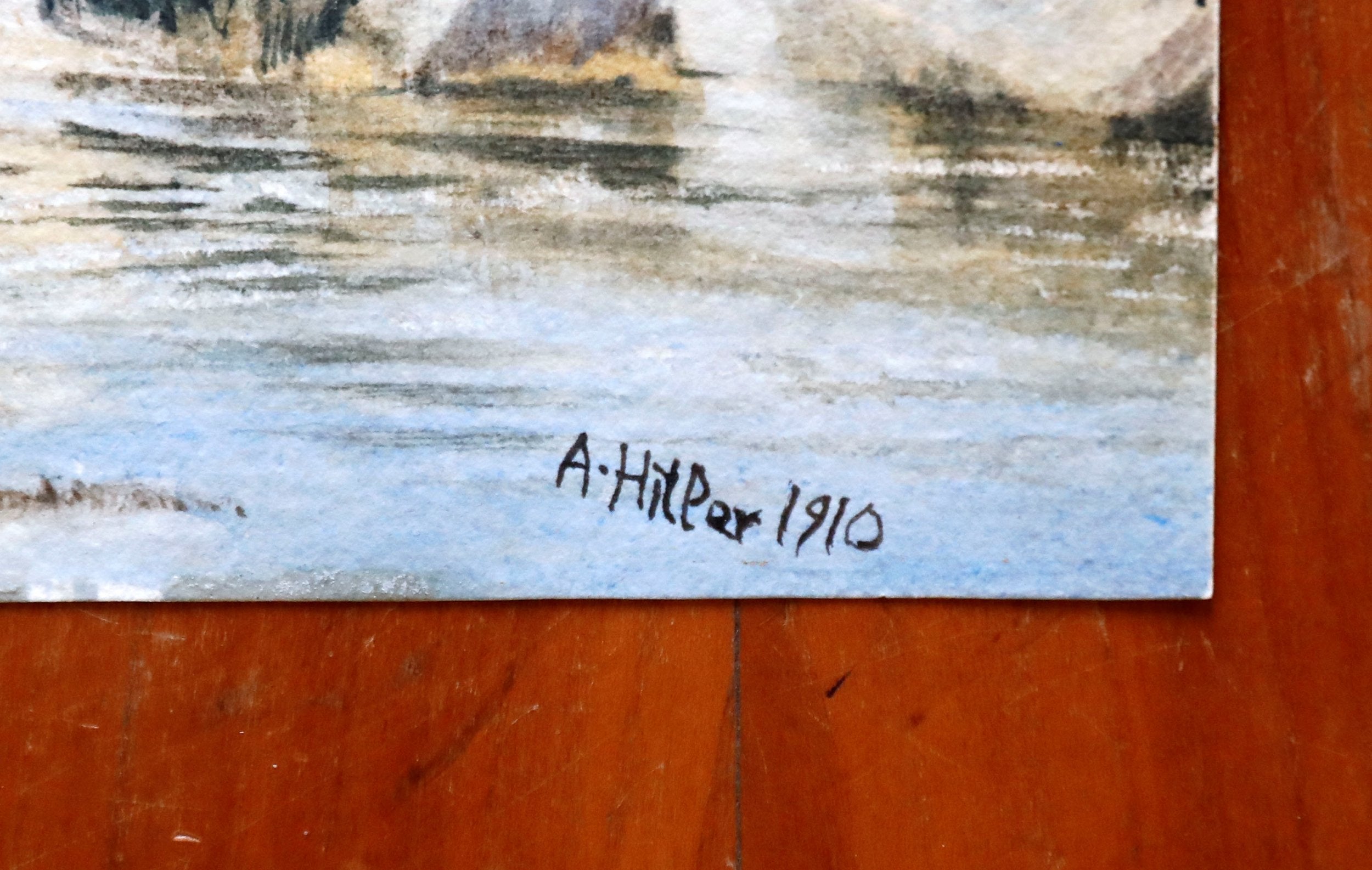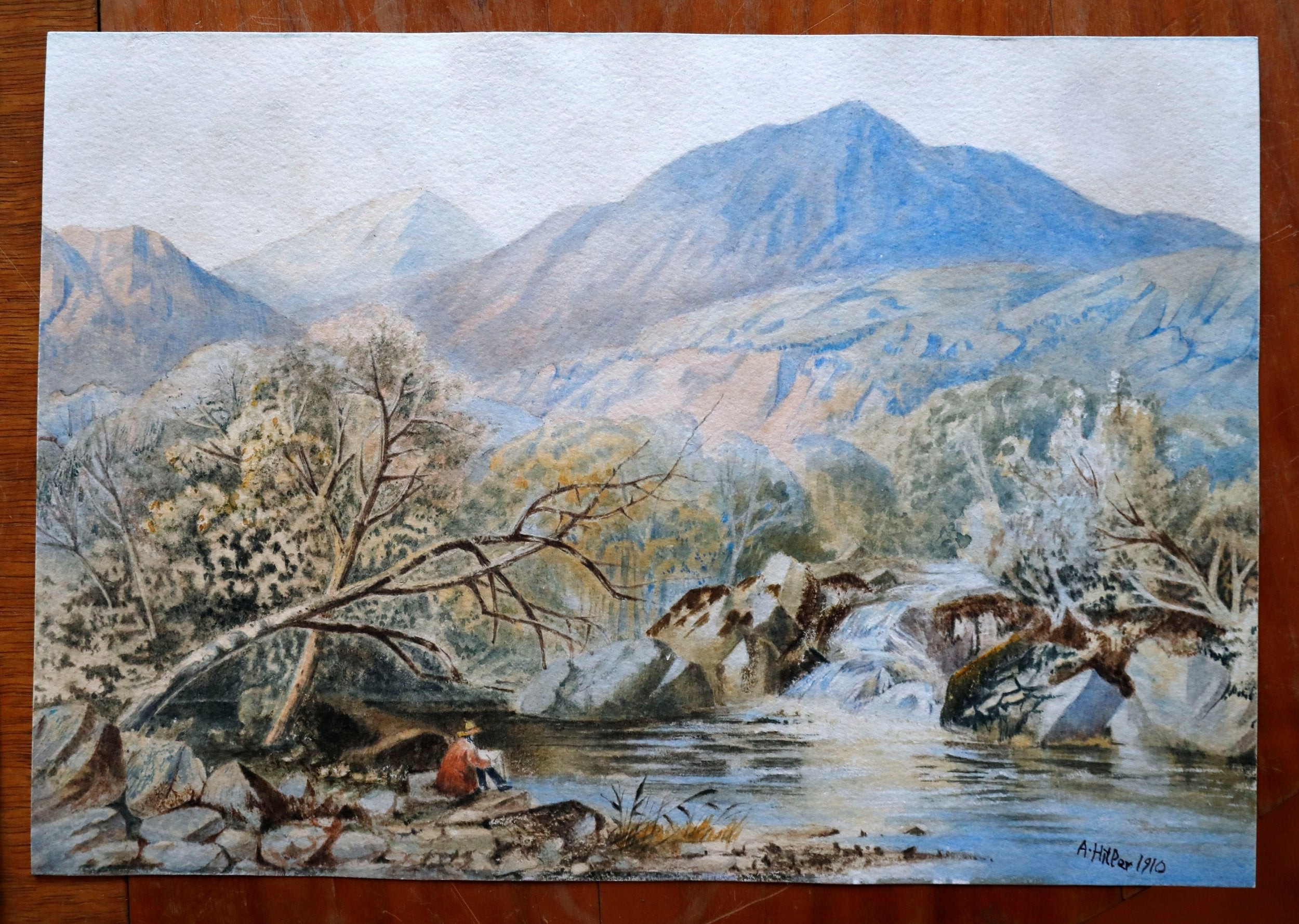'Fake' Hitler paintings seized by German police in Berlin
Update: German police say they suspect the three watercolours that were due to be auctioned are forgeries

Three watercolour paintings that were attributed to former Nazi leader Adolf Hitler have been seized by German police over suspicions that they are fakes.
The three works depict a river, a mountain landscape and a figure sat beneath a tree. All were supposedly created in the early 20th century, when a then-penniless Hitler churned out dozens of postcards and paintings for petty cash. His dream of becoming an artist was dashed when he twice failed to pass the entrance exam for the Vienna Academy of Fine Arts.
A spokesman for Kloss auctioneers told Reuters that the watercolours had "no artistic value", but that Hitler's signature at the bottom would add value.
However authorities have since recovered the artworks due to the possibility that they are forgeries.
Berlin Police tweeted that the pieces had been recovered and an investigation into “fraud and forgery of documents” had begun.

"If you walk down the Seine and see 100 artists, 80 will be better than this," he said.

The painting's sellers did not want to be identified.
There are hundreds of paintings and other artworks by Hitler known to be in existence. Most are held by the US Army, which confiscated them after the allies defeated his regime at the end of World War Two. They are rarely sold in Germany due to his taboo status in the country, and auctions often attract angry protest from relatives of victims and survivors of the Holocaust.
One, sold in Germany to considerable controversy, far exceeded its 48,000 euros estimate and sold for 130,000. The sellers, whose grandfather bought the artwork in 1916, donated 10 per cent of the proceeds to a disabled children's charity.
A police spokeswoman, told the BBC that investigators were looking into whether their authenticity had been “faked”. No arrests have been made.
Kloss auction house was not immediately available for comment.
Join our commenting forum
Join thought-provoking conversations, follow other Independent readers and see their replies
Comments
Bookmark popover
Removed from bookmarks